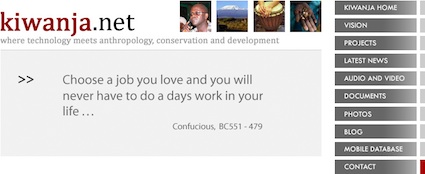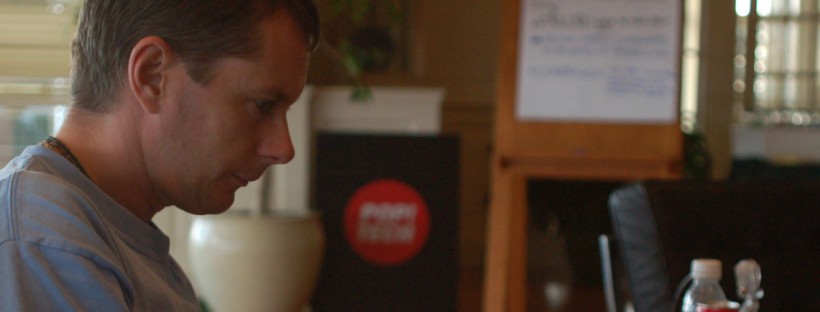A nurse has recorded the most common regrets of the dying, and among the top ones is “I wish I hadn’t worked so hard”. What would your biggest regret be if this was your last day of life?
Earlier this week I tweeted a link to this soberingly-titled Guardian article on the “Top Five Regrets of the Dying“. Since then I’ve had several conversations with people on the subject. For me, the line between ‘work’ and ‘life’ has become increasingly blurred over the past twenty years. Back in the early 1990’s when I first started thinking about the intersection of technology, people, conservation and development there wasn’t a job anywhere where I’d have been able to blend all those skills and interests. My ideal job didn’t exist, so I had to create it. This long-standing quote on the kiwanja website sums up pretty well where I’ve ended up today.

Of course, I’m one of the lucky ones. That said, like everyone I have regrets, but if anyone had told me twenty years ago – even nine years ago when I started out in mobile – that I’d be where I am today I’d never have believed them. I met too many people in my banking days who were content to spend their lives doing jobs they didn’t like – hated even – so they could “enjoy their retirement” with a good pension. For me it’s always been about the journey, not the final destination. I still don’t know where I’m going to end up, truth be told.
In sharp contrast to death and regret, Paul Lamb from Man On a Mission Consulting sent me a random email two days after the Guardian article on the subject of happiness (happy life = fewer regrets?). Having a job you love may be one way to happiness (or fewer regrets), but not everyone is lucky enough to have one of those. So, for anyone who’s yet to figure out their purpose, journey or destination, here’s a few good “Happiness Resources” gleaned from Paul’s email.
Enjoy. And be happy.
The happy secret to better work
Shawn Achor, TED Talks (2011)
The habits of happiness
Matthieu Ricard, TED Talks (2004)
10 Ways to be happy
From the Happiness Project
Taking a Kindness Day off of work
Huffington Post (2011)
The Random Acts of Kindness Foundation
AOK.TV
The “social game for good”
The Greater Good Center
The “science for a meaningful life”, courtesy UC Berkeley
The Happy Movie
(In celebration of World Happiness Day on February 11th, 2012)



